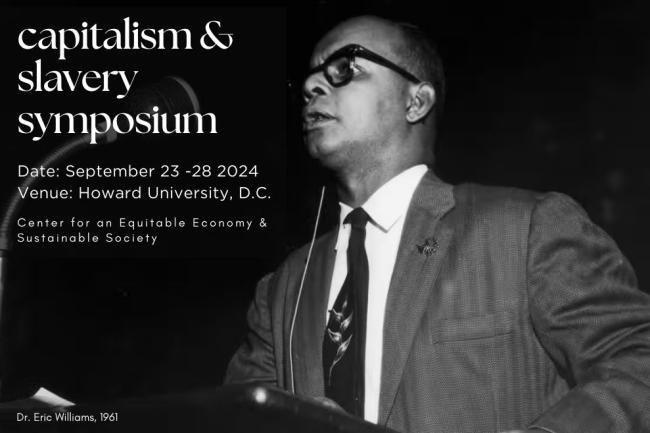Courtesy of the Howard University Newsroom Staff
The Howard University Center for an Equitable Economy and Sustainable Society (e2s2) is proud to announce a symposium celebrating the 80th anniversary of Eric Williams’, Ph.D., landmark publication of “Capitalism and Slavery.” While writing the book, Williams was a professor at Howard University, teaching classes in the political science department. This seminal text, which transformed how scholars understand the relationship between the Transatlantic and the rise of capitalism, will be the focus of a bi-national conventions taking place from September 16-22 in Havana, Cuba and again in Washington D.C. from September 25-28 in Howard University’s School of Business Auditorium.
Michael Ralph, professor and chair of Howard University’s Department of Afro-American Studies, called commemorating the 80th anniversary of CAPITALISM & SLAVERY a “special privilege” for the University.
“Thanks in large part due to Dr. Williams’ landmark text, no credible scholar can try to explain the history of capitalism without the role of slavery in shaping investment strategies, accounting practices, supply chain, time, labor, work-discipline, incentives, insurance, and countless other features of capitalist enterprise.”
During his career, Williams held the position of assistant professor in Howard’s Department of Social and Political Science between 1939 and 1946, after earning his doctorate from Oxford University in 1938.
While at Howard, Dr. Williams conducted additional research for his doctoral thesis, ‘The Economic Aspect of the Abolition of the West Indian Slave Trade and Slavery,’ transforming it into Capitalism and Slavery, which re-shaped scholarly conversations and public knowledge about the massive contribution of human bondage to the tremendous wealth of Europe, and illuminated the financial, social, and political legacies of slavery and colonialism. Capitalism & Slavery remains unparalleled in its influence on thinking through these dynamics even eighty years later, marking the occasion of this symposium.
The symposium will convene leading scholars to explore the enduring impacts of Williams’ research and its relevance in contemporary discussions on economics, politics, race, and history. Sessions will include keynote addresses, individual presentations, panel discussions, and receptions at various embassies, aimed at fostering a deeper understanding of the enduring historical and economic complexities and legacies of liberation in Williams’ work.
“It is crucial to note that the wealth generated by the Transatlantic slave trade did not vanish with Emancipation,” Williams said. “In fact, its value has increased dramatically and compounded over the centuries. So, what has happened with that capital — and what should happen with that capital — remains central to public policy debates.”

